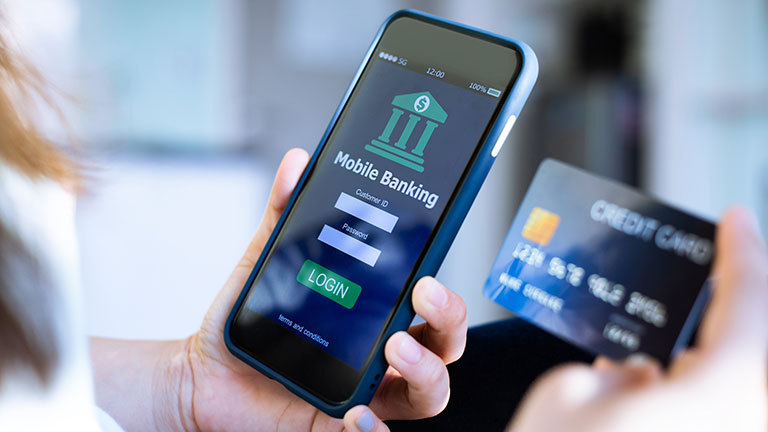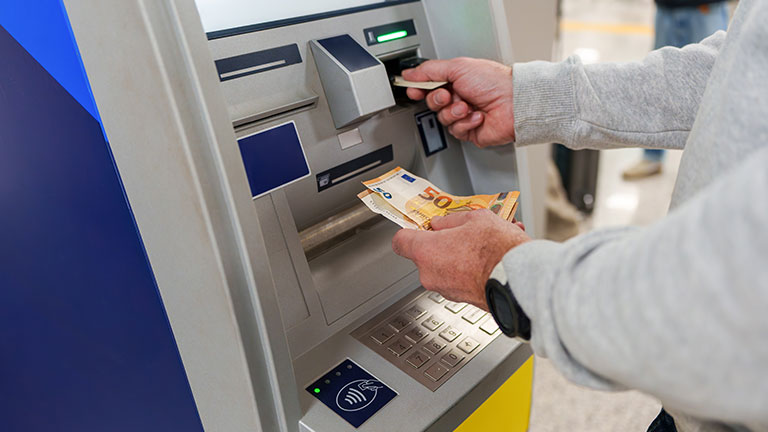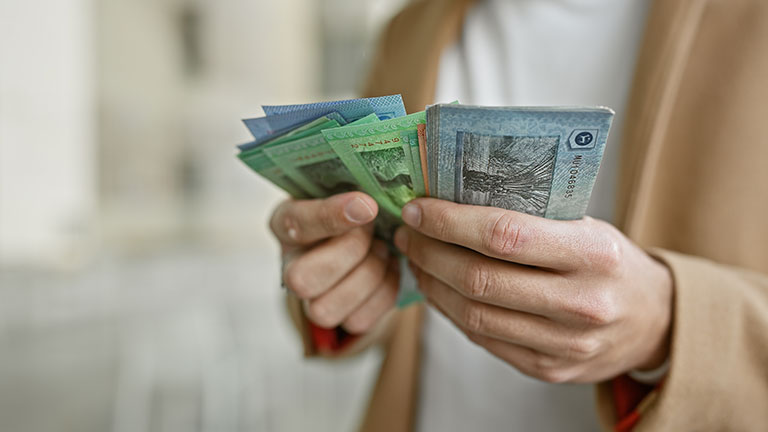On my first trip abroad—studying in London for three months—I changed banks, thinking a free monthly checking account would save me money. I quickly learned that my new bank didn't have partner bank agreements, so every time I withdrew money, I had to pay international transaction fees and currency conversion fees—which were often double what I would have paid otherwise. I learned the hard way about the nuances of accessing money abroad, and, unfortunately, my situation is not uncommon. Amid the excitement of planning an international trip, it’s easy to overlook the basics of managing your travel money.
To avoid a similar situation, here are five key money tips to address before your trip—and one to remember while you're abroad—so that you always have access to your funds and can fully enjoy your vacation.

Notify your bank and credit card company
Once you have your travel dates, inform your bank or credit union—online, by phone, or in person—at least a few days before departure. A travel alert lets the bank know that your spending habits will be changing. Many banks have an online travel alert form where you can enter your travel dates and the countries you'll be visiting.

Be aware of any international transaction fees
Before you travel, check with your bank or credit card company about any international transaction or currency conversion fees. These can quickly add up—and if you’re not prepared, you might be in for an unwelcome surprise when your statement arrives after your trip.
I learned this the hard way. I once switched banks to avoid a small monthly checking account fee, thinking I was being smart. But during a trip abroad, I was hit with foreign transaction and currency conversion fees every time I withdrew cash. The extra fees added up fast and wiped out the savings I thought I had gained.
To avoid similar surprises, consider using a travel credit card that doesn’t charge foreign transaction fees. Many also offer perks like fraud protection, better exchange rates, and travel rewards. For example, the AAA Travel Advantage Visa Signature Credit Card—available to AAA members—has no annual fee, no foreign transaction fees, and offers 3 percent cash back on travel and restaurant purchases. A win-win for international travelers.

Make sure your cards are valid
Do you know when your cards expire? It might seem like a small detail, but knowing your card’s expiration date can save you from a major headache, especially when you’re traveling abroad and relying on it for shopping, dining, or paying hotel bills.
Lesson learned: I once unknowingly used an expired card at an ATM in Spain, and the machine kept it. When I asked the banker (in Spanish) for help, he wouldn’t give me any information and simply told me to contact my bank.
Fortunately, my bank was able to send a replacement card after I explained the situation and provided a local address.

Bring some local currency
Even if you usually rely on cards for your travel money, it’s a smart move to have some local currency on hand when traveling abroad. While withdrawing money from an ATM at your destination is typically easy, unexpected issues—such as a power outage or internet disruption—can make things difficult.
A good rule of thumb is to bring $100 of local foreign currency for each day of your trip. Check with your bank about how to purchase foreign currency and whether any fees apply. Another convenient option: AAA members can arrange to receive foreign currency—with more than 80 different currencies available—in advance from your local AAA Store.

Choose local currency when paying by card
When you’re paying with a credit card or debit card abroad, you'll often be asked whether you want to be charged in US dollars or the local currency. To get the best value, choose the local currency. You’ll usually get a better exchange rate when your card issuer handles the conversion.
That said, check with your credit card or bank beforehand since some may charge a foreign transaction fee regardless of the currency you choose.
Have a backup plan
It’s smart to carry a backup card in a separate location from your main wallet in case your main one gets lost or delayed. Setting up a digital wallet like Apple Pay or Google Pay can also be a lifesaver—letting you make secure purchases even without your physical card.
Taking a few extra steps before departing abroad ensures that you have frustration-free access to your money, allowing you to be more “present” on your travels.

